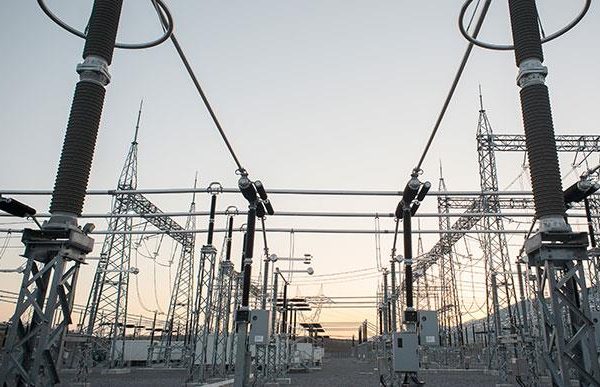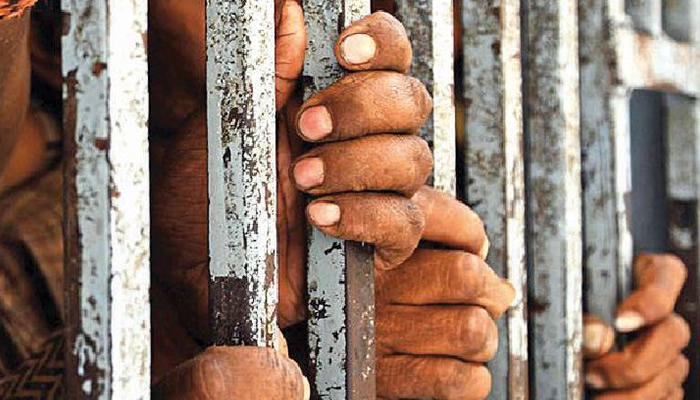Mozambique ferry disaster kills more than 90 – officials
More than 90 people have died after a ferry sank off the north coast of Mozambique, local authorities say.
Officials in Nampula province said five people had been rescued of the around 130 believed to have been on board.
They were fleeing a cholera outbreak, Nampula Secretary of State Jaime Neto said. Many children were among the dead, he added.
“Because the boat was overcrowded and unsuited to carry passengers it ended up sinking,” said Mr Neto.
Unverified video posted on social media purported to show dozens of bodies lying on a beach.
The boat was apparently travelling from Lunga to Mozambique Island, off the coast of Nampula, Portuguese broadcaster RTP reported.
Nampula province has been one of the worst-affected by the cholera outbreak which has spread over several countries in southern Africa since January last year.
According to Unicef, the current outbreak is the worst in 25 years. Since October 2023, Mozambique has reported 13,700 confirmed cases and 30 deaths.
An Islamist insurgency in neighbouring Cabo Delgado province has claimed the lives of at least 4,000 people and displaced nearly one million others since it began over six years ago.
For nearly 400 years, Mozambique Island was the capital of Portuguese East Africa, when the region was under colonial rule. The island is designated a Unesco world heritage site for its colonial architecture and rich history as a trading post.
Brazil Supreme Court judge opens inquiry into Musk
A Brazilian Supreme Court judge has opened an inquiry into Elon Musk after the multi-billionaire said he would reactivate accounts on the social media platform X, formerly Twitter, that the judge had ordered to be blocked.
Mr Musk posted on the platform, external that the restrictions had been lifted because the court order was unconstitutional.
He also called for, external Justice Alexandre de Moraes to “resign or be impeached”.
If X fails to comply with the order, it will be fined 100,000 reais ($19,774; £15,670) a day.
In his decision, Justice Moraes wrote that Mr Musk had launched a disinformation campaign against the Supreme Court.
The platform’s Global Government Affairs team said the company was not allowed to say which accounts were affected.
But Mr Musk has since posted, external that “X will publish everything demanded by [Moraes] and how those requests violate Brazilian law”.
The profiles are believed to have been linked to far-right movements which posted content related to riots on 8 January last year when thousands of supporters of Brazil’s former President Jair Bolsonaro stormed the country’s Congress, the Supreme Court and the presidential palace.
Justice Moraes gained prominence after his decisions to restrict social media platforms in the country.
He is also investigating Mr Bolsonaro and his supporters for their roles in an alleged attempted coup d’état.
On Saturday, the former president posted a video of a meeting he had with Mr Musk in May 2022.
This article contains content provided by Twitter. We ask for your permission before anything is loaded, as they may be using cookies and other technologies. You may want to read Twitter’s cookie policy, external and privacy policy, external before accepting. To view this content choose ‘accept and continue’.
Hours earlier, Mr Bolsonaro also called on his supporters to gather on 21 April.
Meanwhile, Brazil’s communication minister Paulo Pimenta criticised Mr Musk, posting in capital letters that “social networks are not a lawless land”.
“We will not allow anyone, regardless of the money and power they have, to affront our homeland,” he added.
This article contains content provided by Twitter. We ask for your permission before anything is loaded, as they may be using cookies and other technologies. You may want to read Twitter’s cookie policy, external and privacy policy, external before accepting. To view this content choose ‘accept and continue’.
If X decides to disobey the order, the platform could be blocked temporarily according to Bruna Santos who is the global campaigns manager at non profit organisation Digital Action.
“Musk acted to provoke the Brazilian judiciary,” she said. “I think there is a real chance that X might get blocked.”
NZ tightens visa rules amid ‘unsustainable’ migration
New Zealand has tightened work visa rules in response to “unsustainable” migration levels, say authorities.
Low-skilled applicants now have to fulfil English-language requirements and are allowed to stay on for three years – down from five previously.
“Getting our immigration settings right is critical to this government’s plan to rebuild the economy,” said Immigration Minister Erica Stanford.
A near-record 173,000 people migrated to New Zealand last year.
Under the tightened rules, applicants for most work visas now have to fulfill requirements for skills and work experience.
Employers are responsible for ensuring that migrants meet the specified requirements before offering them a job.
Authorities have also decided to axe earlier plans to add 11 roles, such as welders, fitters and turners, to the list of occupations that would qualify for a fast track to residency.
These rules mark “the start of a more comprehensive work programme to create a smarter immigration system,” Ms Stanford said, adding that more stringent visa rules also help prevent the exploitation of migrant workers.
New Zealand, which has a population of 5.3 million, has been experiencing a surge in migration, external since end 2022.
“The government is focused on attracting and retaining the highly skilled migrants such as secondary teachers, where there is a skill shortage.
“At the same time we need to ensure that New Zealanders are put to the front of the line for jobs where there are no skills shortages,” Ms Stanford said.
New Zealand’s Prime Minister Christopher Luxon had said last year that the country’s high net migration rates did not “feel sustainable at all”.
New Zealand’s immigration system had been closed “at a time when employers were looking for workers [during the pandemic]… and then Labour opened the floodgates just as the economy was starting to slow,” Mr Luxon, who leads the conservative National Party, told Radio New Zealand in December.
“We’re inheriting a system that’s been a complete hash,” he had said.
Some policymakers have warned that the new arrivals may further drive up rents and house prices.
On Monday, New Zealand’s Employers and Manufacturers Association raised concerns that the new visa rules could have “unintended” consequences.
“We are supportive of ensuring we are bringing in the right workers, and that they are not exploited, but we do need to make sure we get the balance right,” said Alan McDonald, the association’s Head of Advocacy.
“Making it harder for motivated workers to come into New Zealand means they will go somewhere else, that hurts business and means our economy misses out,” he said.
At the same time, New Zealanders have been moving out of the country – often to its more prosperous neighbour, Australia. Last year, for example, New Zealand saw a record loss of 47,000 citizens.
Australia, which has also seen an influx of immigrants, announced in December that it will halve its migration intake by tightening visa rules for international students and low-skilled workers.
The Australian government has been under pressure from some quarters to temporarily reduce migration to help ease Australia’s housing crisis and infrastructure woes.
Rwanda genocide: World failed us in 1994— President Paul Kagame
The President of Rwanda, Paul Kagame, speaks at a commemoration event at the BK arena during the start of 100 days of remembrance, as Rwanda commemorates the 30th anniversary of the Tutsi genocide, on April 7, 2024 in Kigali, Rwanda.
Rwanda’s president said the international community “failed all of us”, as he marked 30 years since the 1994 genocide that killed around 800,000 people.
President Paul Kagame addressed dignitaries and world leaders who had gathered in Rwanda’s capital, Kigali, to commemorate the bloodshed.
“Rwanda was completely humbled by the magnitude of our loss,” he said.
“And the lessons we learned are engraved in blood.”
On this day in 1994, extremists from the Hutu ethnic group launched a 100-day killing spree, in which members of the Tutsi minority and Hutu moderates were slaughtered.
The mainly Tutsi forces who took power following the genocide were alleged to have killed thousands of Hutu people in Rwanda in retaliation.
On Sunday, Mr Kagame and a group of dignitaries placed wreathes on mass graves at the Kigali Genocide Memorial – where more than 250,000 victims are believed to be buried. The president also lit a remembrance flame.
In a speech later, Mr Kagame thanked fellow African countries including Uganda, Ethiopia and Tanzania for their assistance in accepting Tutsi refugees and ending the genocide.
“Many of the countries representing here also sent their sons and daughters to serve as peacekeepers in Rwanda,” he said.
“Those soldiers did not fail Rwanda. It was the international community which failed all of us. Whether from contempt or cowardice.”
The failure of other nations to intervene has been a cause of lingering shame.
Former US President Bill Clinton, who was among the visiting leaders present, has called the genocide the biggest failure of his administration.
In a video message recorded for the memorial, French President Emmanuel Macron acknowledged that his country and its allies could have stopped the genocide but lacked the will to do so.
France, under then-president François Mitterrand, was a close ally of the Hutu-led government of Juvenal Habyarimana prior to the killings, and Rwanda has accused France of ignoring or missing warning signs and of training the militias who carried out the attacks.
France has consistently denied complicity, but a report commissioned by Mr Macron three years ago concluded that France bears “heavy and overwhelming responsibilities”.
French Foreign Minister Stéphane Séjourné attended the ceremony in Kigali in place of Mr Macron on Sunday. Other visiting dignitaries included Ethiopian Prime Minister Abiy Ahmed, South African President Cyril Ramaphosa, and Israel’s President Isaac Herzog.
Sunday’s events mark the beginning of a week-long mourning period across Rwanda. Music, sport and films will be banned from broadcast on radio or TV and national flags will be flown at half-mast.
The streets of Kigali have been unusually quiet, according to the BBC team there, with no traffic, many shops closed, and few pedestrians.
The genocide was sparked on the night of 6 April 1994, when Hutu President Juvenal Habyarimana was assassinated – the plane he was on was shot down.
Hutu extremists blamed the Tutsi RPF rebel group, and launched a well-organised campaign of slaughter.
Their victims were shot, beaten or hacked to death in killings fuelled by vicious anti-Tutsi propaganda spread on TV and radio.
Thousands of Tutsi women were abducted and kept as sex slaves.
After 100 days of violence, the RPF rebel militia, led by Mr Kagame, succeeded in overthrowing the Hutu authorities and ending the genocide.
Human rights groups say RPF fighters killed thousands of Hutu civilians as they took power – and more after they pursued Hutu militia members who had fled into the Democratic Republic of Congo. The RPF denies this.
Scars from the violence still remain, and new mass graves are still being uncovered around the country.
In the months that followed the genocide, the International Criminal Tribunal for Rwanda was set up in Tanzania.
Dozens of senior officials in the former regime were convicted of genocide – all of them Hutus.
Within Rwanda, community courts, known as gacaca, were created to speed up the prosecution of hundreds of thousands of genocide suspects awaiting trial.
According to Rwanda, hundreds of suspects remain at large, including in neighbouring nations such as DR Congo and Uganda.
President Kagame has been hailed for transforming the tiny, devastated country he took over through policies which encouraged rapid economic growth.
But his critics say he does not tolerate dissent and several opponents have met unexplained deaths, both in the country and abroad.
The genocide remains a hugely sensitive issue in Rwanda, and it is illegal to talk about ethnicity.
Israel’s military confirms ‘decline in forces’ in southern Gaza
Israel’s military said on Sunday that it was reducing its numbers of soldiers from southern Gaza, leaving just one brigade in the area.
The military stressed a “significant force” would remain in Gaza.
“This is another stage in the war effort”, Israel Defense Forces (IDF) spokesman Lt Col Peter Lerner told the Newsmen.
The pull-out is being interpreted as tactical, rather than a sign the war may be moving closer to its end.
Also on Sunday, Israel and Hamas said they had both sent delegations to Cairo to join fresh ceasefire negotiations.
It is six months to the day since Hamas attacked southern Israeli border communities on 7 October, killing 1,200 people and taking more than 250 hostage.
Israel says that of 130 hostages still in Gaza, at least 34 are dead.
More than 33,000 Gazans have been killed in Israel’s offensive in Gaza since then, the Hamas-run health ministry says, the majority of them civilians. Gaza is on the brink of famine, with Oxfam reporting that 300,000 people trapped in the north have lived since January on an average of 245 calories a day.
‘War not over’
Lt Col Lerner said troops would rotate out because the military had completed its mission in Khan Younis.
Khan Younis has been under Israeli bombardment for months, and the city and surrounding area are largely destroyed.
Lt Col Lerner said: “The war is not over. War can only be over when they [hostages] come home and when Hamas is gone.”
“It is a decline in the forces but there are more operations that need to be conducted. Rafah is clearly a stronghold. We need to dismantle Hamas’ capabilities wherever they are.”
US National Security spokesman John Kirby said it appeared to be a “rest and refit” and “not necessarily… indicative of some coming new operation for these troops”.
But later Israeli Defence Minister Yoav Gallant said the troops were leaving to “prepare for their follow-up missions”.
He said their achievements in Khan Younis were “extremely impressive”, adding that Hamas had ceased to function as a military organisation throughout Gaza.
Israel has long warned of a planned ground offensive in the southern city of Rafah, where more than a million displaced Palestinians are sheltering.
Some of the displaced expressed hope that they would soon be able to return to what remains of their homes.
Muhammad al-Mughrabi, 32, from Gaza City, currently living with his family in Rafah, told BBC News he was “filled with hope as my neighbour in a tent from Khan Younis was able to return home”.
“Despite knowing that my house was completely destroyed, I dream daily of returning to my hometown. I will set up a tent over the rubble of my house and live there with dignity, rather than being compelled to reside in the courtyard of a hospital,” he said.
International pressure for a ceasefire is mounting, and the US – Israel’s closest and most powerful ally – warned earlier this week that its ongoing support for the Gaza war is dependent on “specific, concrete steps” to boost aid and prevent civilian deaths.
Marking six months of the war, Israeli Prime Minister Benjamin Netanyahu said Israel was “one step away from victory” but insisted there would be no ceasefire without the release of Israeli hostages.
“The achievements of the war are considerable: we have eliminated 19 of Hamas’s 24 battalions, including senior commanders,” he said.
Tens of thousands of Israelis rallied against Mr Netanyahu on Saturday, demanding a deal to free the hostages held in Gaza.
Anti-government protesters were joined by hostages’ families.
The rallies in Tel Aviv and other cities came hours after the Israel Defense Forces (IDF) recovered the body of hostage Elad Katzir.
Organisers said the protest in Tel Aviv had drawn 100,000 people, while other counts put attendance at around 45,000.
More demonstrations took place on Sunday evening, with thousands protesting in Jerusalem.
Israel ‘can handle’ any threat from Iran, says military chief
Israel’s military has said it is prepared for any Iranian threat, as tension builds after Monday’s attack on an Iranian consulate in Damascus.
Israel is widely believed to be behind the attack, which Iran said killed seven Revolutionary Guard officers.
An Iranian official said on Sunday that Israel’s embassies were “no longer safe”, as it prepares a response.
US and Israeli forces in the region have been put on high alert in anticipation of a possible attack.
Reports in the US media suggest Iran’s retaliation could take place in the coming days.
“The IDF [Israel Defence Forces] can handle Iran,” Chief of General Staff Herzi Halevi said in a televised statement. “We can act forcefully against Iran in places near and far.”
Yahya Rahim Safavi, a senior adviser to Supreme Leader Ayatollah Ali Khamenei, said Iran had a “legal and legitimate right” to respond to Monday’s strike.
“The embassies of the Zionist regime are no longer safe,” he told Iran’s Isna news agency. He did not provide further detail as to what shape Iran’s response would take.
In a statement, Israeli Defence Minister Yoav Gallant said the defence establishment had completed preparations to respond to any possible scenario.
The IDF has halted all leave for soldiers serving with combat units and called up reservists to bolster air defence.
Israel has also blocked GPS signals across swathes of the country in order to disrupt missiles and drones.
Media outlets in Israel have reported that some of the country’s embassies were evacuated over potential Iranian attacks. The BBC has not independently verified those reports and Israel has not confirmed them.
In an apparent effort to prevent panic, a spokesman for the Israeli army said there was no need for people to buy generators, gather food or withdraw money.
Syria’s defence ministry said Israeli aircraft targeted the Iranian consulate building at about 17:00 local time (14:00 GMT) on Monday.
Syrian air defences shot down some of the missiles, but others made it through and “destroyed the entire building, killing and injuring everyone inside”, the ministry added.
Iran’s Revolutionary Guards said that seven of its officers were killed in the strike, including Brig-Gen Mohammad Reza Zahedi and Brig-Gen Mohammad Hadi Haji-Rahimi.
Photos and videos from the scene showed smoke rising from the remains of the collapsed building. Hours after the strike, people in Tehran burned Israeli and US flags in protest.
On the day after the attack, Ayatollah Khamenei said Israel would “regret this crime”, while President Ebrahim Raisi insisted it would “not go unanswered”.
Israel and its closest ally, the US, have been anticipating an Iranian attack ever since.
In the wake of the attack, the Israeli military said it did not comment on foreign media reports.
But an unnamed senior Israeli official told Reuters news agency that those killed had “been behind many attacks on Israeli and American assets and had plans for additional attacks”. They also insisted that the embassy “was not a target”.
Iranian consulate in Syria destroyed following deadly air strike.
Israel has acknowledged carrying out hundreds of strikes in recent years on targets in Syria that it says are linked to Iran and allied groups which are armed, funded and trained by the Revolutionary Guards.
Iran has said the guards were sent to Syria to “advise” President Bashar al-Assad’s forces in the country’s civil war, but it has denied they have been involved in combat or established bases.
Israel’s strikes have reportedly been stepped up since the start of the war in Gaza in October last year, in response to cross-border attacks on northern Israel by Hezbollah and other Iran-backed groups in Lebanon and Syria.
Iran has avoided direct confrontation with Israel during the conflict so far, but Monday’s attack is seen as a serious escalation.




